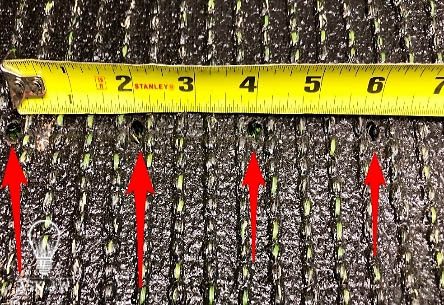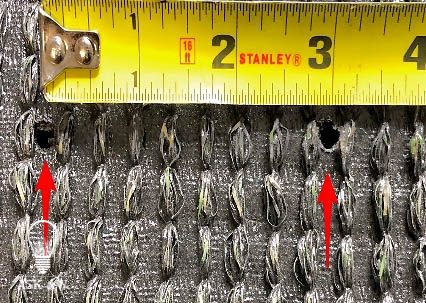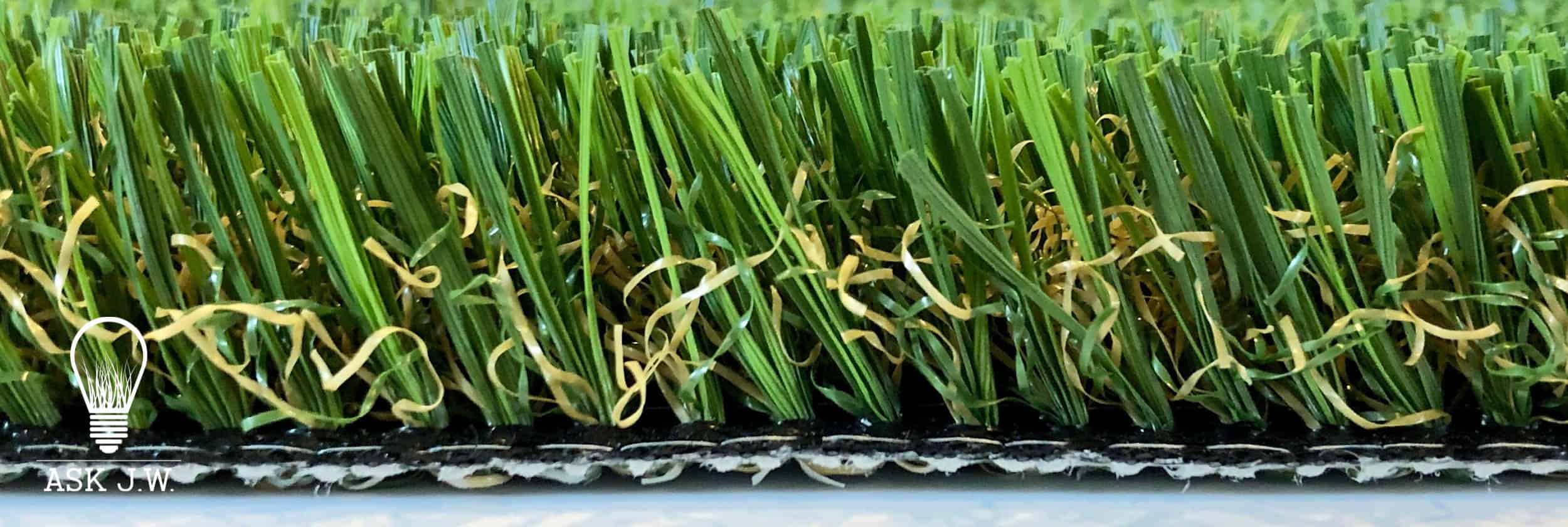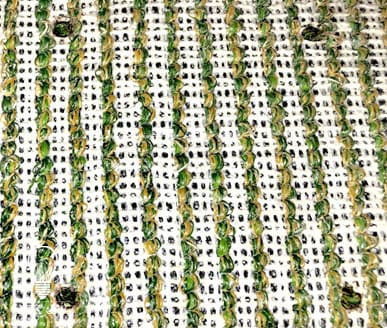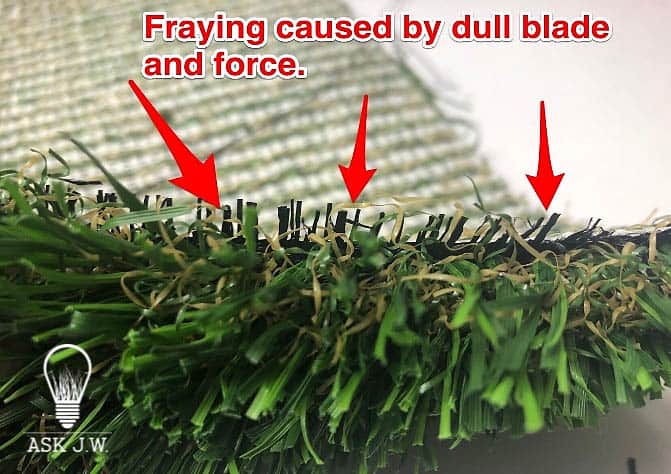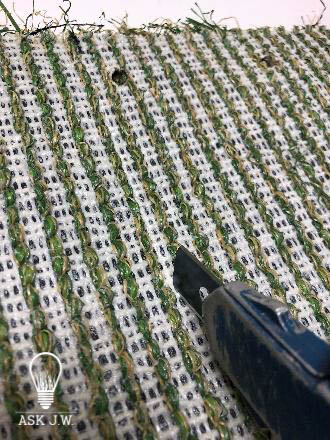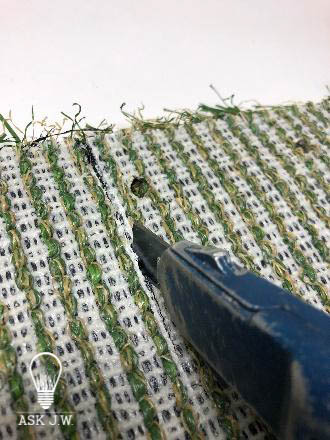In my 26 years of installing synthetic turf, the number one question that clients/homeowners always ask is, “Will pet feces and urine be harmful to synthetic turf? The answer is NO. Pet feces and Urine will not damage synthetic turf, but it may cause it to stink.
The most common mistake that everyone makes when choosing synthetic turf for their pets is drainage, permeability, and maintenance. Odors always arrive due to the misunderstanding of synthetic turf installations & pets. Positive drainage, permeable sub-base, and regular maintenance will prevent odors from occurring.
Pet size and area must be considered when creating a place for your pet to play and do his/her business. If the area is small and the pet is large you will be having your hands full keeping it clean and rid of odors.
I have seen homeowners place a small piece of turf for their 175-pound Great Dane because they wanted the grass to stay green due to his enormous paws tearing it up. After the turf was installed a bigger problem arrived… the smell.
This Month ASK JW will explain drainage within synthetic turf and why choosing SGW Permeable Pet Turf is crucial for keeping your pet happy and your backyard healthy.
Choosing the Right Turf
Below are some recommendations that will assist you in choosing the right turf for your application.
- Depending on the size of your pet, create a large enough area for the pet to play and do their business.
- Choose the correct turf
- SGW Landscape Turf with drainage holes.
- All landscape turf may be used for Pets. 1-3 pet use.
- SGW Landscape Turf with drainage holes.
- SGW Pet Turf.
- Multiple pet use.
- SGW 100% Permeable Pet Turf.
- High Pet use, Small condensed areas, kennels, commercial facilities, Dog Parks.
- Make sure that the soil below the area to be installed drains well and has good permeating qualities. If the soil in the area does not drain or permeate, you will have to remove and replace with a proper drainage material that will retain compaction.
- Maintain daily and use SGW Turf Fresh to rid bacteria.
Synthetic Turf Drainage 101
“Does the turf you place have anything to do with drainage? Yes, it is the first component that you should consider when choosing each product for each application.
Synthetic turf has evolved over the last two decades and most synthetic turf products on the market today are hole punched to allow for proper drainage. Many Installers and clients primarily choose synthetic turf by its “appearance and feel”, ignoring the fact that that product they chose may cause drainage issues long-term.
Turf manufacturers are understanding the importance of their products to allow for certain amounts of water/fluids to drain through the backing. Punching holes in the backing to allow for positive drainage has become the only way. The drainage holes vary with each manufacturer and each product. I have seen drainage holes from 2”, 3”, 4” and up to 8 inches on center.
Bottom line is, the more drainage holes the better drainage. The closer the holes are punched allows for contaminants to make their way through the backing and into the soil simulating natural grass. Synthetic turf products that have drainage holes farther apart from each other will create slow permeability rates. This means that excess water and fluids will not drain as fast and may cause flooding.
To create a successful pet turf area, it starts and ends with the fluidity of all substances penetrating through the surface of the turf. If the synthetic turf product does not give the ability of substances to flow, bacteria may form, and contaminants may remain between drainage holes and create lingering odors.
SGW 100% Permeable Synthetic Turf
Permeable Pet Turf is synthetic turf specifically designed for animal and pet use. This amazing product with its “Ultra-Flow” technology can drain over 400 inches per hour. Its unique design allows all fluids to easily flow through the entire product.
Permeable Pet Turf Installation Tips by Ask JW
Installing the Permeable Pet Turf is much like installing your other turf products except for a few details that I listed below.
- Store the Permeable Pet Turf in a cool and dry environment until its use.
- I recommend placing the “AirDrain” drainage grid below the turf to allow for a rapid flow of liquids and aeration to keep your pet area dry at all times. https://syntheticgrasswarehouse.com/ask-jw-airdrain/
- This is a woven product and even though it is a very strong material you do not want to overuse a carpet kicker when stretching.
- When placing nails or staples within the field (the middle areas within boundaries) make sure you do not set the nail head lower than the backings internal surface. This will cause “Pock Marks” and be visible to the naked eye. You may learn more about “Pock Marks” at https://syntheticgrasswarehouse.com/ask-jw-pock-marks-in-synthetic-turf/
- Cutting & Seaming the Permeable Pet turf may be a little different than cutting and seaming urethane backed turf. Below I have gone into detail of how to cut Permeable Pet Turf. ***SEE BELOW***
- I recommend placing Envirofill Infill for ballast for all pet turf areas. It is antimicrobial and does not absorb Blood, Urine, and vomit which helps fight the odor-causing bacteria.
- When placing infill, I recommend placing 8 lifts of Infill prior to brushing or power brooming. This will prevent static electricity and give the permeable pet turf true ballast.
- And of course, you must construct a positive base below the turf that will be of that of positive drainage.
Cutting & Seaming
Cutting and Seaming the permeable pet turf is different than cutting normal urethane backed turf. Cutting through this type of backing is like cutting through wet straw. You must always use a sharp blade and change the blade out every 10 feet to avoid your edges from fraying. Fraying will occur if your blade is dull or you try to cut the edge too fast.
When you cut the edges of Permeable Pet Turf, you must “Scribe and Cut”, Scribe and Cut”, repeat…
To achieve a clean edge, you must scribe the backing with your knife until the blade breaks through.
I recommend scribing 12 inches at a time so that your blade doesn’t slip.
“When you take your time and change your blades out frequently, you can achieve a perfect edge for seam tape & gluing… and remember, blades are cheaper than labor.”
JW

For more Information regarding Permeable Pet Turf or you just need answers to your questions, feel free to call so I can assist you in your synthetic turf needs.
